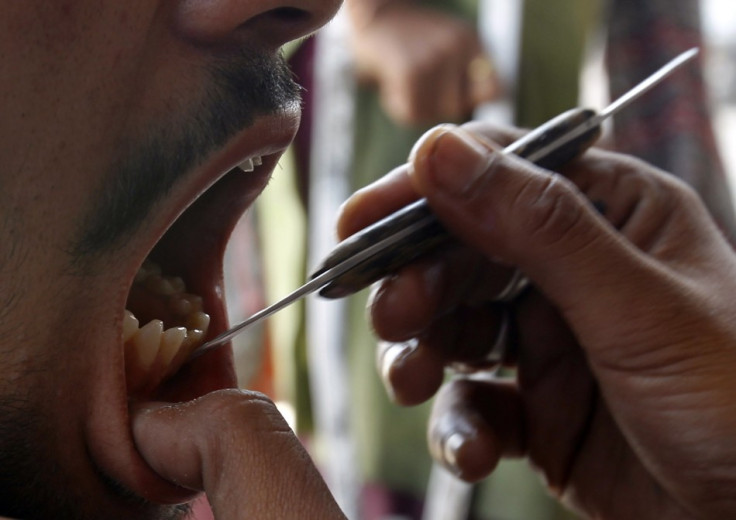Brushing Your Teeth Can Help Beat Cancer
Study finds link between plaque build-up and probability of suffering fatal cancer.

People who have poor dental hygiene and persistent plaque build up may be increasing their risk of dying early from cancer, a study claims.
Plaque, a film of bacteria that covers the surface of the teeth, has long been known to lead to gum damage and tooth decay. It is also thought to be a factor in several systemic health problems.
A study published in the BMJ, carried out by researchers at the Karolinska Institute in Stockholm and the University of Helsinki, has now found what appears to be an increased risk of suffering fatal cancer among people with more plaque.
A group of more than 1,400 randomly selected adults from Stockholm were studied over 24 years, starting in 1985. The participants were monitored and their oral hygiene was assessed to check levels of plaque, tartar and gum disease and tooth loss.
By 2009, 58 of the participants had died, a third of whom were women, and 35 of the deaths were caused by cancer.
The average age of death was 61 for women and 60 for men. All of the deaths were considered premature. The women were expected to live an additional 13 years longer and the men another 8.5 years.
The dental plaque levels were found to have been higher in those who died, with the gum areas of many having been completely covered in plaque.
Once other risk factors, such as smoking, were accounted for, the study found a strong association between dental health and premature death, with plaque showing a 79 percent increased risk.
However, the absolute risk of premature death was low, with such a small number of people from the group having died.
"Our study hypothesis was confirmed by the finding that poor [mouth] hygiene, as reflected in the amount of dental plaque, was associated with increased cancer mortality," wrote the authors of the study, led by Dr Birgitta Söder, of the department of dental medicine at the Karolinska Institute.
"Further studies are required to determine whether there is any causal element in the observed association."
© Copyright IBTimes 2025. All rights reserved.
















